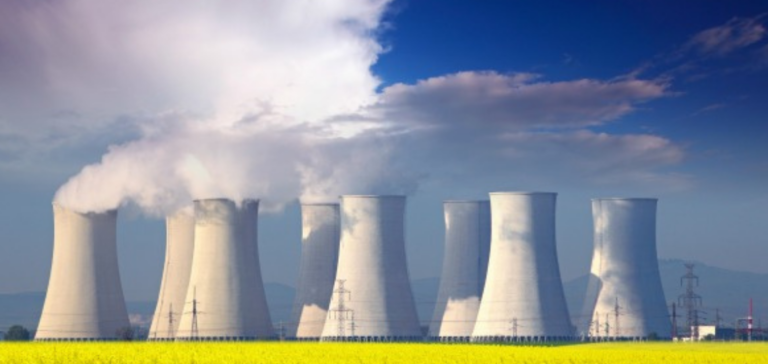In a bold move, Europe recently voted to include nuclear power as a key green technology. This decision, although focused on decarbonizing the European economy, goes beyond environmental aspects, touching on European competitiveness and sovereignty in the face of superpowers such as China and the United States.
Europe Embraces Nuclear Power for Green Transition
The European Parliament has taken this important step by approving a draft regulation which provides for the defense of the production of these low-carbon technologies within the EU. The target set for 2030 is an ambitious one: to produce 40% of the Union’s needs in these sectors, in line with similar initiatives in China and the USA.
Nuclear Power, A Pillar of European Decarbonization
Although symbolic for the nuclear industry, which remains largely regulated at national level, this text marks a significant political victory. Christophe Grudler, MEP for the Renew group, expressed his satisfaction at seeing nuclear power placed on an equal footing with renewable energies. This recognition of nuclear power as a pillar in the decarbonization of the European economy is a decisive step forward.
Future debates and Member State flexibility
The proposal, which will be discussed further with the member states, should see them adopt a similar position, arguing for the inclusion of nuclear power among the essential technologies of the energy transition. Europe is looking not only to achieve carbon neutrality by 2050, but also to strengthen its energy sovereignty.
A First Victory for European Nuclear Power
The initial draft regulation, presented on March 16, had already mentioned nuclear power as a means of decarbonizing the economy, representing an early victory for France and other EU countries such as the Netherlands, Sweden and Poland. However, only new-generation reactors and small modular reactors were concerned, and most of the aid was limited to “strategic” sectors.
MEPs opted for a more flexible approach, leaving member states free to choose the zero-emission technologies they wish to promote. The plan calls for simplified and accelerated procedures for industrial start-ups, as well as easier financing. It also introduces environmental criteria into public tenders, a provision that could favor European suppliers.
Europe’s inclusion of nuclear power as a green technology is a decisive step towards decarbonizing its economy. This strategic choice underlines the importance of diversifying energy sources while strengthening Europe’s competitiveness and energy sovereignty. Subsequent negotiations and decisions by member states will determine the scale and scope of this ambitious initiative.






















